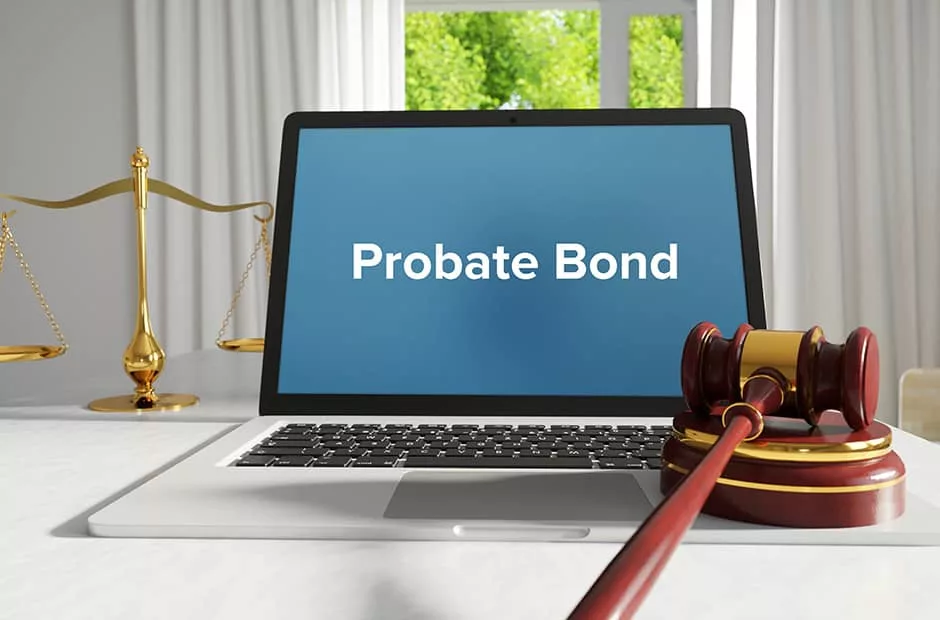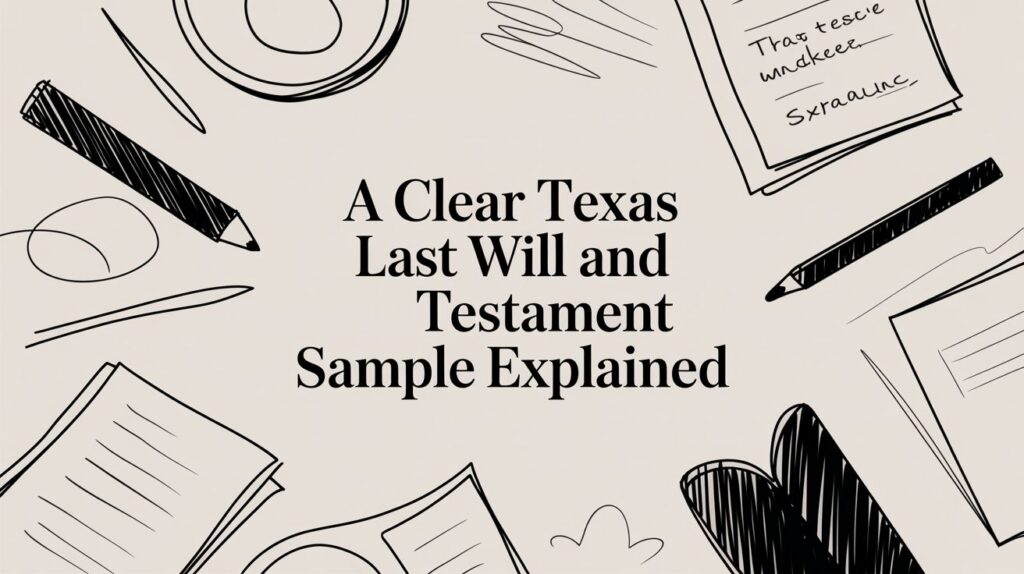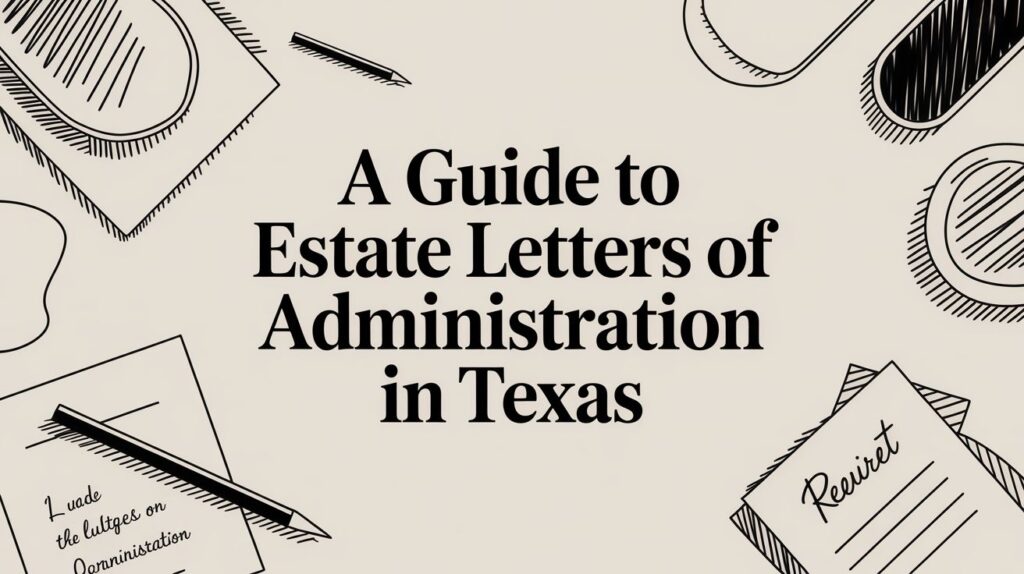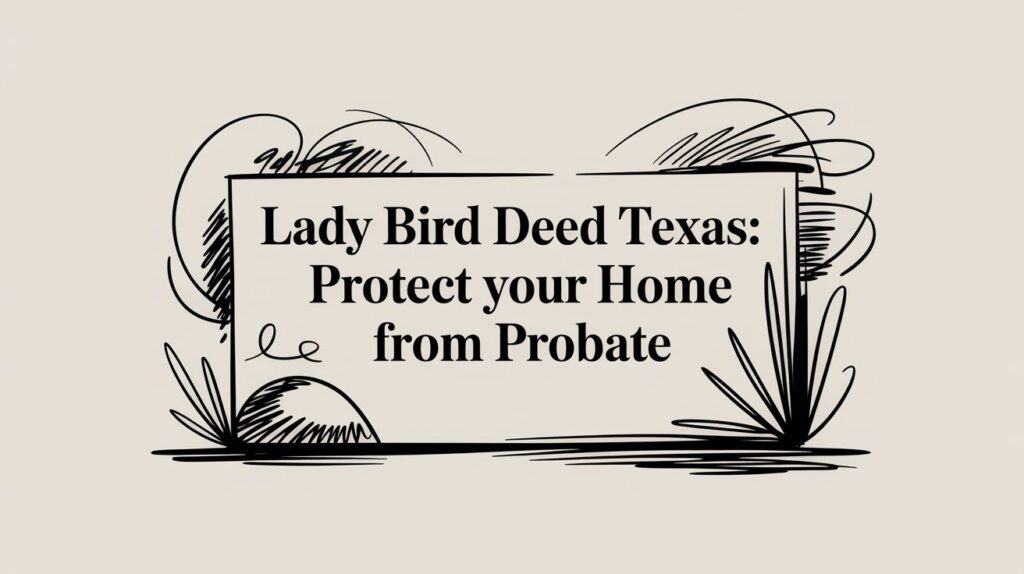If you’re trying to settle a loved one’s estate, it’s natural to wonder, when is bond required in Texas probate? This is one of the most frequently asked questions by executors, administrators, and heirs alike. The answer, as with most things in probate law, depends on a few key factors—including whether there was a valid will, the type of probate proceeding, and the preferences of the deceased and the court.
In this detailed guide, we’ll walk you through everything you need to know about when bond is required in Texas probate, how it impacts the estate, and why heirs and beneficiaries should care. With real-life examples, practical breakdowns, and clear explanations, we’ll make sure this complex legal concept finally makes sense.

What Is a Probate Bond and Why Does It Matter?
Before diving into when is bond required in Texas probate, let’s take a step back and look at what a probate bond actually is.
A probate bond—also known as an executor bond, administrator bond, or fiduciary bond—is a type of insurance. It protects the estate and its beneficiaries in case the executor or administrator mismanages the estate’s assets. Essentially, it’s a financial safeguard. If the person in charge of the estate fails in their legal duties, the bond ensures the estate can recover losses.
This matters because executors and administrators handle:
- Bank accounts
- Real estate
- Investment portfolios
- Personal property
- Debts and tax filings
That’s a lot of financial responsibility. And if something goes wrong, the bond provides peace of mind to beneficiaries and the court.
Real-Life Story: Teresa’s Surprising Bond Requirement
Teresa, a 54-year-old accountant in Fort Worth, was appointed as the independent executor of her late father’s estate. The will clearly named her as the executor, and she assumed the process would be straightforward. But when she appeared in court to qualify for letters testamentary, the judge required her to post a $300,000 bond.
Why? The will didn’t explicitly waive bond. Though Teresa had no ill intentions and years of financial experience, the court followed Texas probate law to the letter.
This came as a shock—not just because of the cost (which would require a premium), but because she had to scramble to qualify for the bond. Had the will included a waiver, she would have skipped this step entirely.
Her experience shows exactly why understanding when is bond required in Texas probate is so important.
The General Rule: Bond Is Required—Unless Waived
Under the Texas Estates Code, the default rule is simple: a bond is required unless the will explicitly waives it or the court chooses to waive it based on the facts.
This rule applies differently based on the type of probate administration:
Independent Executors
In most Texas wills, the deceased names an independent executor to administer the estate with minimal court supervision. If the will does not waive bond, the court will require one—even if the executor is trustworthy.
Dependent Administrators
In a dependent administration (where the court supervises every step), a bond is always required, even if all heirs agree it’s unnecessary.
Intestate Estates (No Will)
When there’s no will and an administrator is appointed, the court typically requires a bond. This is especially true if the administrator is not the sole heir or if there are minors or incapacitated heirs involved.
Understanding this baseline makes it easier to answer the central question: when is bond required in Texas probate? Most often—unless it’s been legally waived.

What Does a Bond Cover in Texas Probate?
Now that we know when bond is required in Texas probate, let’s talk about what the bond actually covers. In Texas, a probate bond is designed to ensure the personal representative:
- Collects and protects all estate assets
- Pays debts and taxes properly
- Distributes assets according to the will or Texasintestacy laws
- Files an accurate inventory and accounting
- Avoids fraud, negligence, or self-dealing
If the executor fails in these duties—whether intentionally or through poor management—the surety company (which issued the bond) may be required to compensate the estate. The executor is then personally responsible for repaying the bond company.
This is why probate courts are cautious. Bond acts as a failsafe to keep estate administration transparent and accountable.
Factors That Influence Whether Bond Is Required
The probate court has some discretion, and certain circumstances influence whether bond can be waived or will be enforced. Let’s look at a few of the most important ones.
1. The Will’s Language
If the will expressly waives bond for the named executor, the court will usually honor that request—unless red flags arise. Wills that include phrases like “without requirement of bond” or “bond is waived for my executor” are key.
2. Size of the Estate
Larger estates often increase the likelihood of a bond being required, especially when no waiver exists. Courts want to ensure significant assets are properly protected.
3. Number of Heirs and Their Age
If minors or incapacitated individuals are beneficiaries, the court tends to require a bond, even if the will waives it. Protecting vulnerable heirs is a top priority under Texas probate law.
4. Conflicts Among Heirs
When disputes exist—or are likely—the court may require bond as an added layer of protection. This is common in blended families, sibling rivalries, or contested wills.
By assessing these factors, judges determine when bond is required in Texas probate, even in cases that initially seem clear-cut.
Cost of a Probate Bond in Texas
One of the most common concerns is: how much does a probate bond cost? The answer varies, but generally, the bond premium is about 0.5% to 1% of the total bond amount.
So, for example:
- A $100,000 bond might cost $500 to $1,000
- A $500,000 bond could cost $2,500 to $5,000
This premium is not refundable, and it must be paid by the executor out of pocket (not the estate), unless the court allows reimbursement. Executors with poor credit may struggle to qualify or may pay a higher rate.
This makes it critical to plan ahead. When preparing an estate plan, testators should seriously consider whether to waive bond in their will—especially when naming a financially responsible executor.

Real-Life Example: James and the Cost of Oversight
James, a 60-year-old small business owner, was named dependent administrator of his late brother’s estate, which lacked a valid will. The court required a $400,000 bond due to property and business assets. His bond premium was $3,200 annually—and the estate remained open for two years due to multiple creditor claims.
While the estate eventually reimbursed James, the upfront cost came out of his own funds, and he had to manage renewals, paperwork, and increased scrutiny throughout the process.
His case shows how when bond is required in Texas probate, it can introduce real burdens—especially in dependent administrations.
Can Bond Ever Be Waived by the Court?
Yes, but it’s rare. In the absence of a will or a waiver, the court can still choose to waive bond in limited situations—typically when:
- The executor is also the sole beneficiary
- All heirs sign a written waiver of bond
- There are no minor or incapacitated heirs
- The estate is small and uncomplicated
However, waiver is never guaranteed. The judge will consider the best interest of the estate and all parties involved before granting an exception.
How to Avoid Probate Bond Requirements
While you can’t avoid every bond situation, there are strategic ways to minimize the likelihood:
1. Draft a Will That Waives Bond
Include clear language that states your executor is not required to post bond. This one line can save your family thousands of dollars and weeks of hassle.
2. Choose a Trusted Executor
Select someone with a clean financial record and personal integrity. Judges are more likely to honor a waiver when the executor appears responsible.
3. Discuss Bond With an Attorney
If you’re creating an estate plan, your attorney can help you word your will correctly. If you’re serving as an executor, an attorney can help request a bond waiver or navigate surety company approvals.
Planning ahead avoids surprises. And that’s the best way to reduce stress for your loved ones when probate eventually begins.

Final Thoughts: When Is Bond Required in Texas Probate?
So, when is bond required in Texas probate? Generally, bond is presumed necessary unless a valid will clearly waives it. Dependent administrators must post bond without exception, and courts may still require it to protect minors, large estates, or in cases where family disputes could put the estate at risk. Executors are also expected to pay a premium—often out of pocket—to secure the bond before they can be officially appointed to manage the estate. While the court may waive the bond requirement in rare, low-risk situations, such decisions are uncommon and should not be assumed.
For heirs and beneficiaries, bond serves as an important safeguard, ensuring that the estate will be handled responsibly. For executors, however, it adds a layer of accountability—and a potential financial burden. Understanding the circumstances in which bond is required in Texas probate equips all parties with the foresight to plan accordingly and avoid delays during administration.








